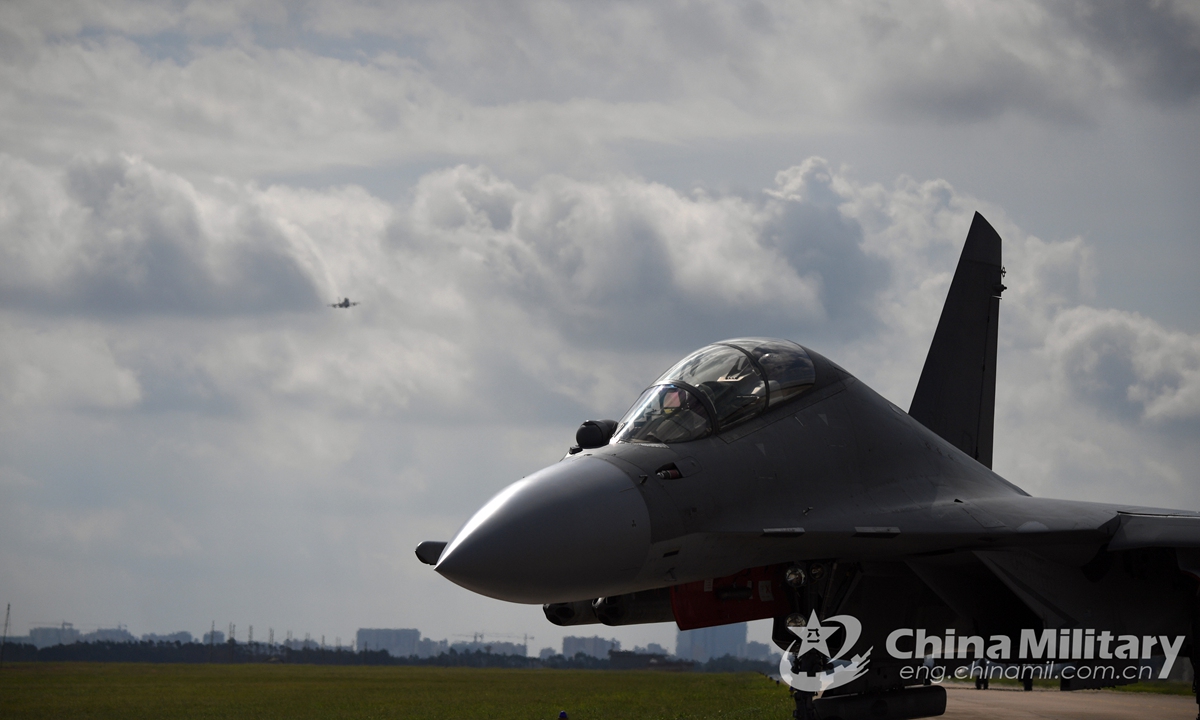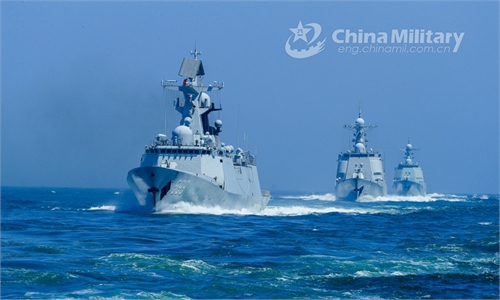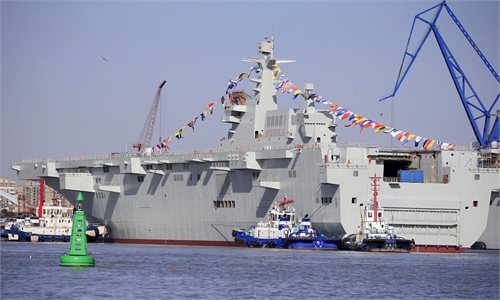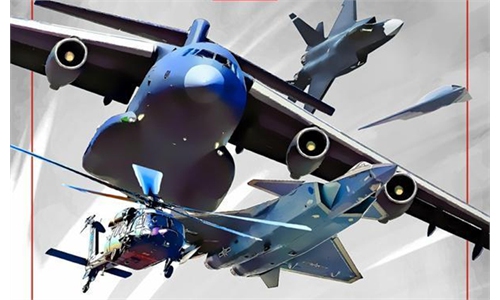China explores water ingestion trial methods for warplanes, enhances all-weather combat capability

A fighter jet attached to an air force base under the PLA Southern Theater Command taxis on the runway of a military airport in south China before takeoff for a joint training exercise involving multi-type fighter jets on May 14, 2021. (eng.chinamil.com.cn/Photo by Fan Yishu)
China is reportedly exploring water ingestion trial methods for warplanes, as its aviation industry recently conducted such test for the first time.
Experts said on Wednesday that this will allow China's future warplanes to fly safer even under bad weather and runway conditions.
The Test Flight Center of the state-owned Aviation Industry Corporation of China (AVIC) recently conducted China's first water ingestion trial on a warplane, which achieved success despite the current lack of experience, China Aviation News, a newspaper affiliated with AVIC, reported on Friday.
During the trial, the aircraft powered on, taxied, took off, flew and landed in rainy weather and on a waterlogged runway, with the goals being testing if water would impact the engines and other power devices, if the airframe including the landing gears remains intact, and if systems including the airspeed boom still work properly. The maneuverability of aircraft on waterlogged runways was also tested, the report said.
But the type of warplane featured in the trial was not disclosed.
China previously had experience with water ingestion trials for civilian aircraft, including the ARJ21 and C919 passenger planes, and also the Y-20 large transport aircraft, a military aircraft with civilian applications.
Water ingestion trials are a must for civilian aircraft to prove their airworthiness. Since water could cause structural damages and lead to accidents when sucked into the engines, this is of particular significance especially in civilian aircraft whose passengers are not equipped with ejection seats and parachutes, Fu Qianshao, a Chinese military aviation expert, told the Global Times on Wednesday.
China's warplanes did not conduct water ingestion trials because they focused on other tactical and technical parameters, and the safety threat posed by water is less significant and partially covered by ejection seats and parachutes, Fu said.
But as China's aviation industry develops, it is normal to add water ingestion trials for warplanes too, which will enable them to fly safer, Fu said.
Military aircraft need to conduct missions under any condition in order to have more advantages. It is also important for them to be able to take off from and land on waterlogged runways, analysts said.
The trial will provide an important experience and reference for the tests of future Chinese warplanes, according to the China Aviation News report.




